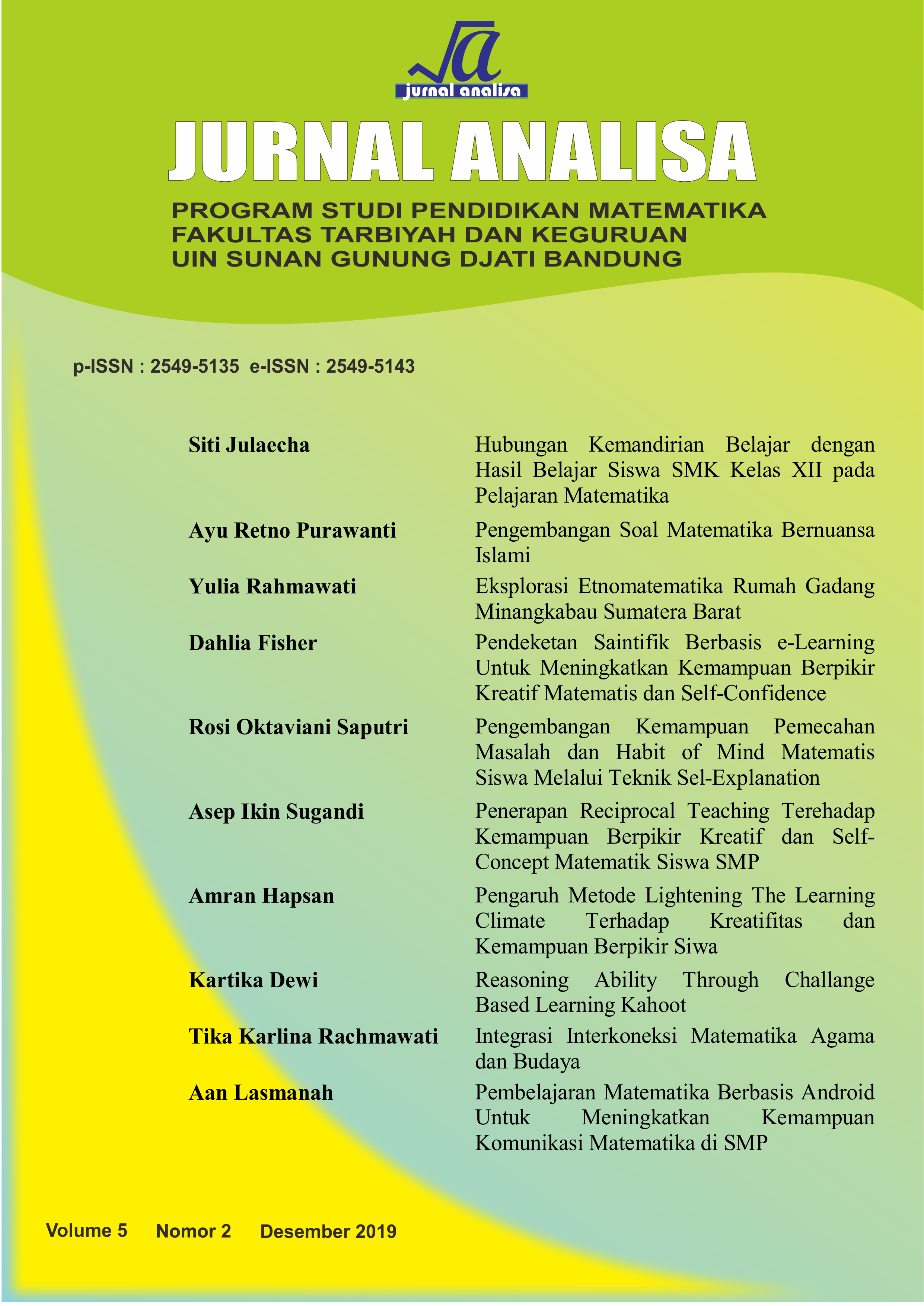Reasoning ability through challenge based learning kahoot
DOI:
https://doi.org/10.15575/ja.v5i2.6666Keywords:
Challenge based learning, Kahoot, Mathematical ReasoningAbstract
The main objective is to analyze the improvement of mathematical reasoning ability through the challenge based learning with kahoot application. An experimental study, pre-test and post-test control group design. The population subjects were all students of class XI of the SMAN 26 Bandung, by involving a sample of three classes through random sampling techniques from five parallel classes available. Instrument for mathematical reasoning tests. Findings: There was improvement in mathematical reasoning abilities of students who obtained a challenge based learning assisted by the kahoot application, challenge based learning without a kahoot, and conventional learning. Improvement of mathematical reasoning abilities of students who obtained a challenge based learning with kahoot application is better than challenge based learning without the kahoot, and expository learning. Challenge based learning kahoot applications can facilitate conflict processes, discovery, social interaction, and reflective to improve students’s mathematical reasoning abilities.
Downloads
Published
Issue
Section
License
Authors who publish in Jurnal Analisa agree to the following terms:
1. Authors retain copyright and grant the journal right of first publication with the work simultaneously licensed under a Attribution-ShareAlike 4.0 International (CC BY-SA 4.0) License that allows others to share the work with an acknowledgment of the work's authorship and initial publication in this journal.
2. Authors are able to enter into separate, additional contractual arrangements for the non-exclusive distribution of the journal's published version of the work (e.g., post it to an institutional repository or publish it in a book), with an acknowledgment of its initial publication in this journal.
3.Authors are permitted and encouraged to post their work online (e.g., in institutional repositories or on their website) prior to and during the submission process, as it can lead to productive exchanges, as well as earlier and greater citation of published work (See The Effect of Open Access).


